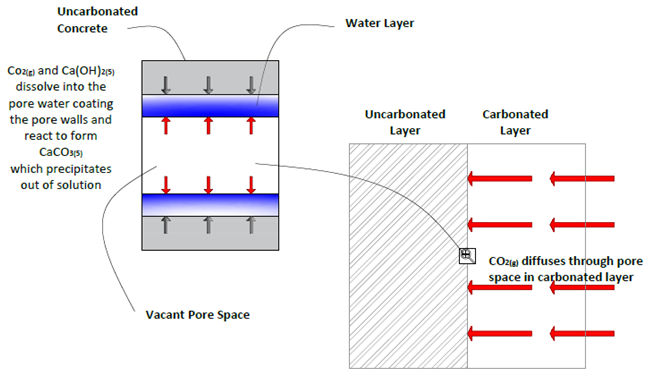
Various investigations have been carried out to evaluate the infrastructure’s augmented vulnerability owing to concrete carbonation persuaded by the changes in the environment during recent years. Due to global warming and its effect, carbon dioxide emission levels in the atmosphere get increased and this would further increase the probability of carbonation-induced corrosion in concrete structures. In this present study, an empirical model is used to identify the diffusion coefficient of carbon dioxide (CO2) in concrete. Water cement (w/c) ratio of 0.45, 0.5, and 0.55 has been considered with emission scenarios of Representative Concentration Pathway (RCP) 8.5 and 4.5 respectively. The research findings through empirical modeling proved that the depth of carbonation has a direct relationship with water cement ratio and it is also predicted that by the year 2100, considering 2000 as the base year, the carbonation depth may raise up to 78% for reinforced concrete structures subject to various climatic conditions such as temperature, humidity, etc.
Total file downloads: 6